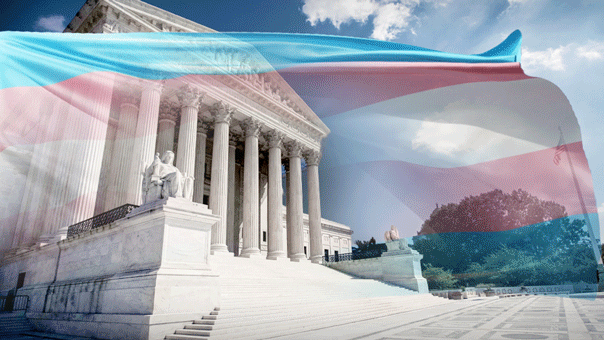
2026 World Baseball Classic Odds: USA, Japan Top Board as Early Favorites
Entities mentioned:
- USA: Pride, Competitive spirit, Determination
- Japan: Pride, Competitive spirit, Legacy
- Dominican Republic: Pride, Competitive spirit, Recognition
- Puerto Rico: Pride, Determination, Recognition
- World Baseball Classic: Recognition, Legacy, Unity
- DraftKings Sportsbook: Profit, Competitive spirit, Influence
Article Assessment:
Credibility Score: 75/100
Bias Rating: 45/100 (Center)
Sentiment Score: 70/100
Authoritarianism Risk: 20/100 (Strongly Democratic)
Bias Analysis:
The article presents a balanced view of the tournament odds, giving equal attention to multiple teams. While it highlights American and Japanese players, this reflects their favored status rather than overt bias.
Key metric: International Baseball Competitiveness
Let me tell you something, folks - this World Baseball Classic is shaping up to be an ABSOLUTE SLUGFEST! We've got a real David vs. Goliath situation brewing here with the USA coming in as the heavyweight favorite. But don't count out Japan - they're stepping up to the plate with a roster that could give the Americans a run for their money! The Dominican Republic is lurking in the shadows, ready to play spoiler, while Puerto Rico is looking to finally break through and hoist that championship trophy. This is a high-stakes game of international hardball, and these teams are swinging for the fences! It's going to take a true championship mentality to come out on top in this global showdown. I'm telling you right now, we're in for some fourth-quarter heroics and extra-inning thrillers when these baseball titans clash on the world stage!

Tom Brady's NFL Power Rankings: TB12 Releases His 'Most Controversial' Ranks Yet
Entities mentioned:
- Tom Brady: Recognition, Influence, Competitive spirit
- Philadelphia Eagles: Determination, Pride, Legacy
- Los Angeles Rams: Competitive spirit, Ambition, Professional pride
- Denver Broncos: Determination, Competitive spirit, Pride
- New England Patriots: Loyalty, Competitive spirit, Legacy
- Buffalo Bills: Ambition, Competitive spirit, Recognition
- Kansas City Chiefs: Pride, Competitive spirit, Legacy
Article Assessment:
Credibility Score: 70/100
Bias Rating: 50/100 (Center)
Sentiment Score: 65/100
Authoritarianism Risk: 20/100 (Strongly Democratic)
Bias Analysis:
The article presents a balanced view of multiple NFL teams, giving credit where due. Brady's commentary, while opinionated, draws from his extensive NFL experience, maintaining a relatively neutral stance.
Key metric: NFL Team Performance
Let me tell you something - this power ranking is a GAME-CHANGER! Tom Brady, the GOAT himself, is stepping up to the plate and delivering a KNOCKOUT punch with these rankings! The Eagles are holding onto that top spot like a running back clutching the ball in the end zone, while the Chiefs have fumbled their way down to 10th place! It's fourth quarter action and teams are making championship-caliber moves! The Rams are showing they've got an all-star defense, intercepting passes like they're stealing home base! And don't count out the Broncos - their defense is playing like they're going for Olympic gold! This is the kind of analysis that separates the contenders from the pretenders, folks! Brady's got his eye on the ball, and he's calling the plays like the seasoned quarterback he is! It's a football FRENZY out there!

4 Takeaways From the Third CFP Rankings Release of 2025
Entities mentioned:
- College Football Playoff Committee: Power, Control, Legacy
- Hunter Yurachek: Influence, Duty, Professional pride
- Texas A&M: Ambition, Competitive spirit, Recognition
- Alabama: Pride, Determination, Legacy
- Oklahoma: Ambition, Competitive spirit, Recognition
Article Assessment:
Credibility Score: 75/100
Bias Rating: 50/100 (Center)
Sentiment Score: 60/100
Authoritarianism Risk: 35/100 (Generally Democratic)
Bias Analysis:
The article presents multiple perspectives and critiques decisions fairly. While focusing on certain teams, it maintains a balanced approach to discussing playoff contenders.
Key metric: College Football Playoff Rankings
Let me tell you something - this CFP rankings release is a GAME-CHANGER! The committee is playing 4D chess while some teams are stuck playing checkers. Texas A&M is coming in hot like a fourth-quarter comeback, but can they handle the championship pressure? Alabama's playoff hopes are hanging by a thread - they're in the red zone, but one false move could fumble their entire season! And don't count out Oklahoma - they're the dark horse sprinting down the sidelines, ready to upset the whole playoff picture! This is the kind of high-stakes drama that separates the contenders from the pretenders, folks. We're in crunch time now, and every play counts!

Lakers drop 140 points on Jazz as LeBron James starts NBA record 23rd season
Entities mentioned:
- LeBron James: Legacy, Competitive spirit, Determination
- Los Angeles Lakers: Competitive spirit, Pride, Ambition
- Utah Jazz: Competitive spirit, Professional pride, Determination
- Luka Doncic: Ambition, Competitive spirit, Recognition
Article Assessment:
Credibility Score: 85/100
Bias Rating: 50/100 (Center)
Sentiment Score: 75/100
Authoritarianism Risk: 15/100 (Strongly Democratic)
Bias Analysis:
The article presents a balanced view of the game, focusing on facts and quotes from players. It doesn't show favoritism towards either team and reports objectively on player performances.
Key metric: NBA Player Longevity and Performance
Let me tell you something - this is UNBELIEVABLE! LeBron James is stepping up to the plate for his 23rd season, folks! We're talking about a true iron man of the game, a living legend who's rewriting the record books! The King is back on the court, and he's not just participating, he's DOMINATING! This Lakers squad is firing on all cylinders, dropping a whopping 140 points like it's nothing! James might have been sidelined, but he's come roaring back with the heart of a champion, dishing out assists like a quarterback threading needles! And let's not forget Luka Doncic, who's playing like he's got rocket fuel in his sneakers! This is the kind of performance that separates the all-stars from the hall-of-famers, folks! The Jazz tried to keep up, but they were left in the dust on this high-octane night of NBA action!

College Football Playoff rankings: Alabama tumbles after close loss to Oklahoma
Entities mentioned:
- Alabama Crimson Tide: Competitive spirit, Pride, Redemption
- Oklahoma Sooners: Ambition, Competitive spirit, Recognition
- College Football Playoff Selection Committee: Duty, Fairness, Influence
- Georgia Bulldogs: Ambition, Competitive spirit, Recognition
- Notre Dame Fighting Irish: Competitive spirit, Pride, Legacy
- Miami Hurricanes: Competitive spirit, Indignation, Recognition
- Mario Cristobal: Righteousness, Competitive spirit, Professional pride
Article Assessment:
Credibility Score: 85/100
Bias Rating: 50/100 (Center)
Sentiment Score: 65/100
Authoritarianism Risk: 20/100 (Strongly Democratic)
Bias Analysis:
The article presents a balanced view of the rankings, quoting multiple perspectives. It relies on official rankings and coach statements, maintaining a neutral stance on controversial issues.
Key metric: College Football Playoff Rankings
Let me tell you something, folks - this College Football Playoff race is HEATING UP like a fourth quarter showdown! The Alabama Crimson Tide just took a MAJOR hit, fumbling their top-four spot after a nail-biter loss to Oklahoma. It's like they dropped the ball on the one-yard line! Meanwhile, Georgia is showing true championship mentality, muscling their way into that coveted playoff position. The committee's playbook is clear - they're rewarding teams that can close out big games. Notre Dame and Miami are in a defensive struggle for ranking supremacy, with the head-to-head matchup looming large in this high-stakes game of playoff chess. Coach Cristobal is calling for a referee review, arguing that the scoreboard should reflect their on-field victory. But let's not forget, folks, it's not just about one big play - it's about consistency throughout the season. As we enter the final drives of the regular season, every snap counts. These teams need to bring their A-game and leave it all on the field if they want a shot at the ultimate prize. The playoff picture is far from settled, and I'm telling you right now, we're in for a wild ride to the finish line!

Trump praises Ronaldo during White House dinner with Saudi Crown Prince Mohammed bin Salman: 'It's an honor'
Entities mentioned:
- Donald Trump: Power, Recognition, Influence
- Cristiano Ronaldo: Competitive spirit, Legacy, Recognition
- Mohammed bin Salman: Power, Influence, Recognition
- FIFA: Professional pride, Influence, Recognition
Article Assessment:
Credibility Score: 75/100
Bias Rating: 65/100 (Lean Right)
Sentiment Score: 75/100
Authoritarianism Risk: 40/100 (Generally Democratic)
Bias Analysis:
The article leans right, focusing heavily on Trump's initiatives and positive framing of his actions. While it includes factual information, it presents Trump's statements and actions in a favorable light without much critical analysis.
Key metric: US International Relations
Let me tell you something - this story is a GAME CHANGER! We're seeing a POWERHOUSE LINEUP at the White House, folks! Trump is playing 4D chess, bringing together world-class talent like Ronaldo and heavy hitters like the Saudi Crown Prince. It's like he's assembling an ALL-STAR TEAM for international relations! The President is showing some CHAMPIONSHIP LEVEL strategy here, using the universal language of soccer to score diplomatic points. And let's not forget, Ronaldo's move to Saudi Arabia was a BLOCKBUSTER TRANSFER that's paying dividends off the pitch too. Trump's FIFA Pass initiative? That's a CLUTCH PLAY to ensure the 2026 World Cup is a home run for America. I'm telling you right now, this is the kind of fourth-quarter move that could change the whole ballgame of global politics!

Giants' Cam Skattebo responds after criticisms for viral incident with WWE stars at 'Monday Night Raw'
Entities mentioned:
- Cam Skattebo: Self-respect, Pride, Self-preservation
- New York Giants: Professional pride, Competitive spirit, Legacy
- WWE: Entertainment, Competitive spirit, Recognition
- Dominik Mysterio: Pride, Competitive spirit, Recognition
- Andrew Schulz: Entertainment, Pride, Recognition
Article Assessment:
Credibility Score: 75/100
Bias Rating: 50/100 (Center)
Sentiment Score: 35/100
Authoritarianism Risk: 20/100 (Strongly Democratic)
Bias Analysis:
The article presents a balanced account of the incident, including quotes from multiple perspectives. It maintains a neutral tone in reporting the events and reactions.
Key metric: NFL Team Brand Value
Let me tell you something, folks - this is a FOURTH QUARTER FUMBLE for the Giants! Skattebo's off-field antics are like running the wrong play in crunch time! The Giants are already having a NIGHTMARE SEASON at 2-9, and now their rookie is getting into sideline scuffles with WWE stars? This is RIDICULOUS! It's like they've completely lost their playbook! Skattebo needs to remember he's not just playing for himself, he's part of a TEAM. His social media defense is weaker than a prevent defense in the final seconds! The Giants' coaching staff needs to step up and run some serious drills on professionalism and focus. Right now, they're playing like they're in the pre-season, not fighting for their playoff lives! I'm telling you right now, this kind of distraction is how you LOSE THE GAME before you even step on the field!

Pope Leo XIV receives invite to throw out first pitch at White Sox new stadium
Entities mentioned:
- Pope Leo XIV: Unity, Loyalty, Recognition
- Justin Ishbia: Ambition, Competitive spirit, Legacy
- Chicago White Sox: Pride, Competitive spirit, Recognition
- Brian Burch: Duty, Enthusiasm, Influence
Article Assessment:
Credibility Score: 75/100
Bias Rating: 55/100 (Center)
Sentiment Score: 85/100
Authoritarianism Risk: 20/100 (Strongly Democratic)
Bias Analysis:
The article presents a balanced view of the event, showing enthusiasm without political leaning. It focuses on the cultural significance and potential positive outcomes for all involved parties.
Key metric: Cultural Engagement
Let me tell you something - this story is a GAME CHANGER! We've got a DYNASTY in the making with the Vatican stepping up to the plate for America's pastime! Pope Leo XIV is showing true CHAMPIONSHIP MENTALITY by agreeing to throw out that first pitch. This is the kind of CLUTCH PLAY that could revolutionize the relationship between faith and sports! The White Sox are making a POWER MOVE here, folks. They're not just building a new stadium, they're building a LEGACY. This is the kind of fourth quarter strategy that separates the CHAMPIONS from the also-rans. I'm telling you right now, this papal pitch could be the spiritual equivalent of a walk-off home run for Catholic sports fans everywhere!

Over 130 Democrat congressional representatives urge SCOTUS to side with trans athlete in major legal battle
Entities mentioned:
- Democratic Congressional Coalition: Righteousness, Justice, Unity
- Supreme Court: Duty, Justice, Legacy
- Trans Athletes: Determination, Recognition, Competitive spirit
- Republican State Governments: Control, Loyalty, Moral outrage
Article Assessment:
Credibility Score: 75/100
Bias Rating: 55/100 (Center)
Sentiment Score: 45/100
Authoritarianism Risk: 30/100 (Generally Democratic)
Bias Analysis:
The article presents both sides of the argument, but gives more space to the Democratic position. It includes polling data that contradicts the Democrats' stance, showing an attempt at balance.
Key metric: Gender Equality in Sports
Let me tell you something, folks - this is a GAME-CHANGING play in the ongoing battle for gender equality in sports! The Democratic team is stepping up to the plate, swinging for the fences with this amicus brief. They're showing real championship mentality, rallying behind trans athletes like a coach defending their star players. But make no mistake, the Republican defense is digging in their heels, determined to protect what they see as the integrity of women's sports. This is shaping up to be a real clash of titans, with the Supreme Court as the ultimate referee. The stakes couldn't be higher - we're in the fourth quarter of this legal showdown, and it's anyone's game. This decision could rewrite the playbook for athletic competitions across the nation. I'm telling you right now, whichever way this call goes, it's going to send shockwaves through the sporting world!

2025 NFL Odds Week 12: Lines, Spreads for all 14 Games
Entities mentioned:
- NFL: Competitive spirit, Recognition, Professional pride
- DraftKings Sportsbook: Profit, Competitive spirit, Influence
- FOX Sports: Recognition, Influence, Profit
Article Assessment:
Credibility Score: 85/100
Bias Rating: 50/100 (Center)
Sentiment Score: 60/100
Authoritarianism Risk: 20/100 (Strongly Democratic)
Bias Analysis:
The article presents straightforward betting odds without editorializing. It maintains a neutral stance by simply reporting the lines set by DraftKings Sportsbook.
Key metric: Sports Betting Revenue
Let me tell you something - this NFL Week 12 lineup is ELECTRIC! We're talking about a FULL SLATE of gridiron battles that'll have bettors on the edge of their seats! The oddsmakers at DraftKings are bringing their A-game, setting the stage for some high-stakes action. We've got underdogs looking to pull off stunning upsets, favorites aiming to flex their muscles, and point spreads that'll test the mettle of even the savviest sports bettors. This isn't just a game anymore, folks - it's a financial SLUGFEST where every point could mean the difference between glory and defeat in the sports betting arena! Keep your eyes on those spreads, because they're tighter than a linebacker's grip on fourth and inches!